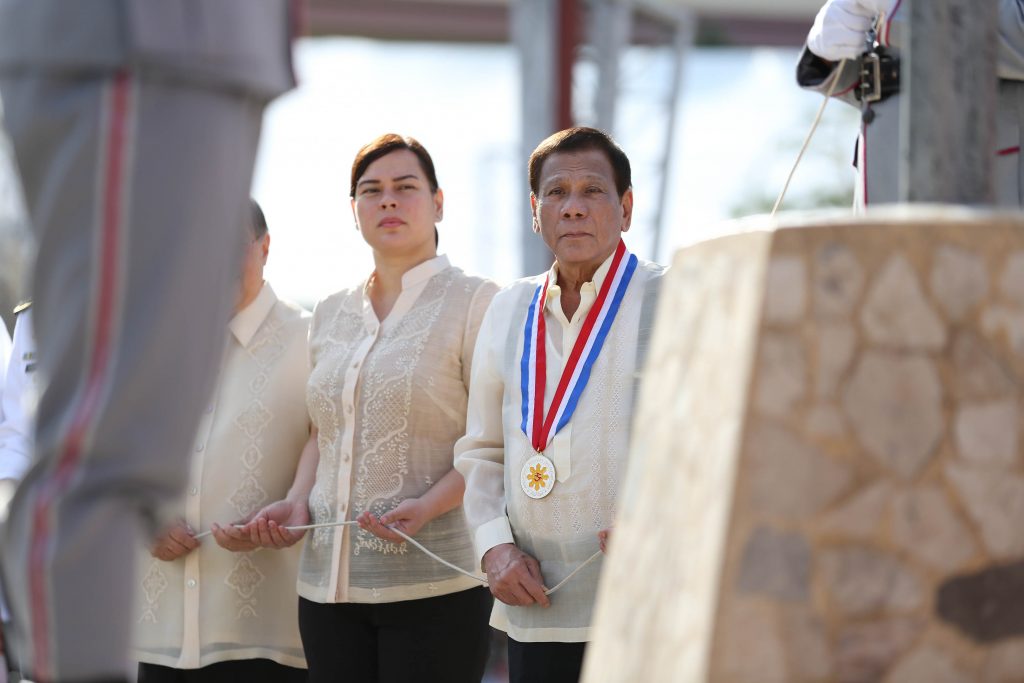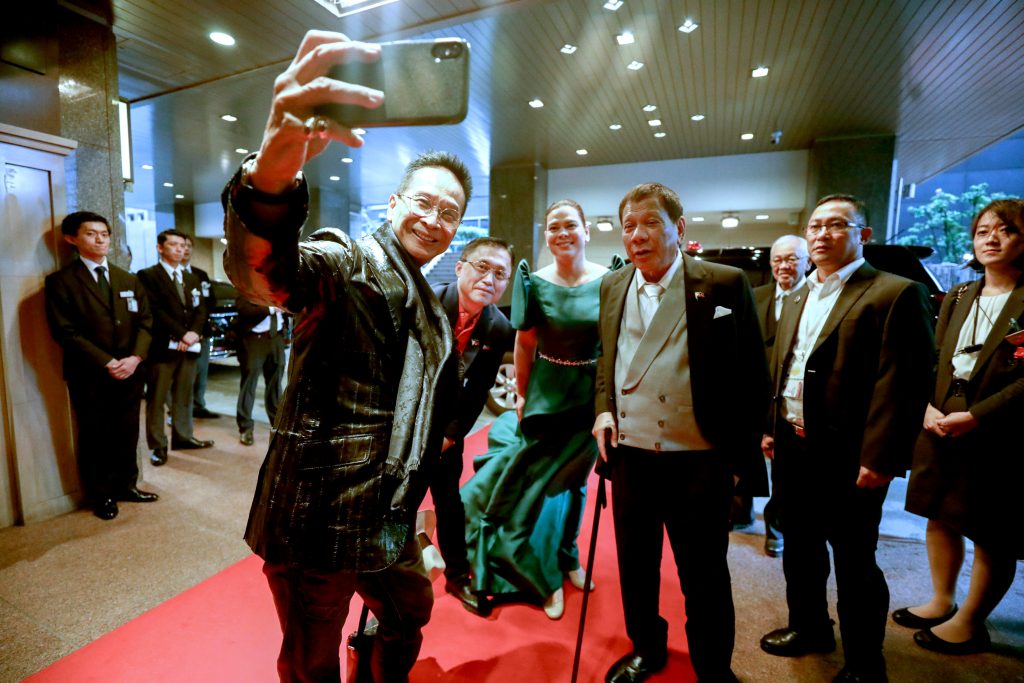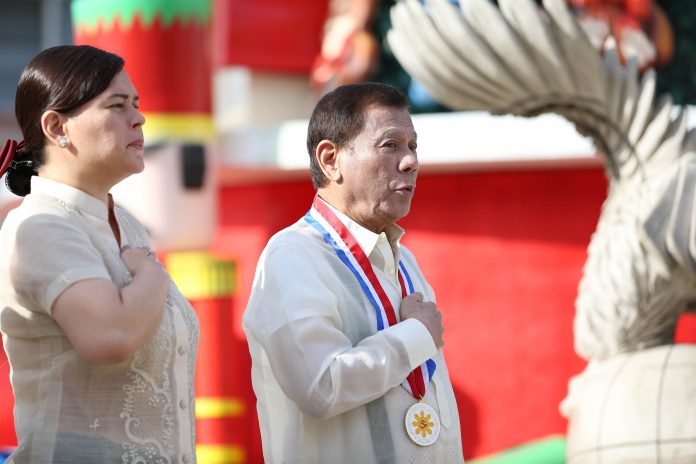Nothing could be totally mortifying to a democracy than dynasty. It’s like trying to breathe freely while wiggling under the massive thumb of a one-family régime.
If, as one author had said, that a dynasty is nothing but the successful orchestration of treachery, then it is, by expectation, corrupt, self-serving, and in well-nigh all cases, violent, vindictive and, by and large, a misrepresentation of all that a democratic government stands for.
If history were to be the yardstick of how political dynasties work, then, on the whole, it would be one huge greedy monster whose claws will always find itself inside the cookie jar. Dynastic families dance to the tune not only of self-interest and greed, but the interest of those too powerful and too influential to ignore. To safeguard loyalties, it must have more.
Kings waltz to the pressures of earls, emperors their nobles. The citizenry serves as mere ragdolls to two overaged horrors trying to outclass one another.
More than just simple plutocracy, dynastic rule in the past insisted on being recognized as a diktat from on high. They claim to be the gods’ mirror images on earth.
Dynasties claim to wield heaven’s “justice,” altogether used to inflict judgment on all who get in their way. It exacts tributes and taxes for no grander purpose than to enrich their bloodline, build monuments in their names, and secure the lineage’s longevity in the halls of power.
The revolutions of the past, which toppled kings and emperors, were staged exactly for the purpose of introducing a new system of leadership where the people’s will, more than the royals’, must take precedence overall.
The ideology behind democracy, in fact, stands or falls on this dictum: the choice of leadership must either begin and end in the sovereign will of the people or the will of the idols of empire. The two cannot live and prosper side by side without finally colliding.
Today, the fight to secure people’s rights under a democracy is being challenged by the patronization of dynastic rule. In particular, the idea broached by former Palace spokesperson Salvador Panelo that a Duterte-Duterte tandem for the 2022 presidential elections may be in the backburners.
In a statement recently published by the Manila Bulletin, Panelo was quoted as weaving a possible Sara Duterte-Rodrigo Duterte candidacy for President and Vice President, respectively. Panelo insists that a Duterte-Duterte tandem, whose idea he allegedly floated long before the pandemic, would win the race hands down.
“If the Duterte-Duterte tandem runs,” Panelo said, “it’s over.”

While the country’s laws do not prohibit a Duterte-Duterte alliance from running in the polls, the idea of one family taking the reins of leadership is, in principle, a reason for outrage in any democracy.
The one condition necessary for this to happen is for both Houses of Congress to continue thumbing down the Anti-Political Dynasty Bill.
As we are all aware, the bill had had a very difficult time in the hands of lawmakers. The span of close to 30 years had passed with the barest light at the end of the tunnel.
That is, until the 18th Congress when Senate Bills Nos. 11 and 30 were filed in July 2019 by senators Franklin Drilon and Ping Lacson, both bearing the title of “An Act Prohibiting the Establishment of Political Dynasties”.
Simply put, no official’s spouse, relative (within the second civil degree of consanguinity or affinity) can run for public office in the same province or city, or the same political designation right after the occupant’s term. The ban covers everyone from parents, siblings, children, in-laws, grandparents and grandchildren. Legitimate or illegitimate, full or half-blood: all must come to terms with the ban.
All those running for office are required—with the exception of candidates in the barangay level who are exempted from the overall ban—to file a sworn statement with the Commission on Elections that they are not relatives of any official running for office in the same city or province.
Arguments against the ban are by no means trifling. What if family members are the only ones eligible for the post, meaning, eligible by way of wherewithal, skill and experience? Why sacrifice a relative to run for the post, all at the expense of experience, if only to avoid the dynastic game of “Trip to Jerusalem” where all participants are relatives?
Money, too, is a key ingredient to winning the polls. A candidate of meagre resources will most likely lose to one with billions in the bank. Bankrolled largely by businessmen, Duterte’s 2016 election expense reached P371 million, while Leni Robredo had the largest expenditure among the six vice presidential candidates at P418 million.

Winning is all about having the financial fuel to run a tight and fast race. Having the cash is half the battle won. At least, in this country, that’s the rule of thumb.
Others argue in favor of considering political positions as any other professional job in the market, like, perhaps, a daughter following the footsteps of her physician mother. Or, closer to the realm of government, a son making waves in the same military academy where his father served as board member.
Problem with the argument is that while civilian professions come aplenty, the same cannot be said about the varying positions in the three branches of government, more so the Executive.
Political families also end up fielding just about anyone bearing their family name without testing whether they could lead or not. Corporate offices demand more from candidates in the thick of a job search than our largely incompetent government.
As we have seen all across different administrations, power must be wielded only by the hands of a few, principally within the circle of a handful of families, individuals. Too much power in too many hands works contrary to power’s ultimate goal, which is control. The less power people have, it would be less likely for equally powerful rivals to emerge.
Power is also intensely personal. It must be restricted within the bloodline and the extended, closely-knit pack of cronies. It keeps resources within arm’s reach, neither too thinly spread nor easily spent outside of one’s knowledge. The more resources are amassed and clustered into a solid loop, the harder for other entities not belonging to the circle to grab hold of it.
This puts the powerful family or political entity in an unshakeable advantage, leaving the rest incapable of challenging the position should the latter prove incompetent and violent.
The bigger problem of limiting power to a few (aside from the corruption it breeds) comes with the seeming inability of these powerful families to grow past the traditions held by their predecessors.
The longer they rule, the less likely they are to adjust to the demands of the times for reasons that lock them in a kind of misplaced loyalty to their family’s traditional leadership ideas.
This is true in the Philippines as in other countries whirling under the grip of political dynasties. The need to perpetuate familial traditions of leadership, no matter how poorly played, often get in the way of necessary ingenuity.
Article II of the 1987 Constitution reads: “The state shall guarantee equal access to opportunities for public service, and prohibit political dynasties as may be defined by law.”
A law defining political dynasties, however, has yet to hurdle its way through a largely indifferent Congress. Article II, therefore, hangs like dirty linen, with no one in the legislature giving it the time of day.
Dynastic rule robs us of all the chances rooted in a democratic system to improve the course the country must take. It is restrictive, in the least; destructive at best.
It’s not surprising that where laws had failed to topple political dynasties, only revolution remained.
Joel Pablo Salud is an editor, journalist and the author of several books of fiction and political nonfiction. The views and opinions expressed in this article are those of the author and do not necessarily reflect the official editorial position of LiCAS.news.









